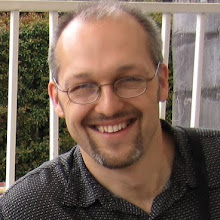To understand true reality, the unseen real around us, sometimes requires unmasking the seen that poses as real.
I like the way my friend Abner put it in his blog on Nov. 2: "This was my train of thought as I stood in line at Ralph’s yesterday; one cashier, and about six people in front of me.
"As Americans we are a physically, emotionally and spiritually obese people. We’re so use to having our way that when it doesn’t happen, we are faster than anyone else on the face of the planet to feel that sense of entitlement. “I want it, I should have it, I deserve it.”
We get angry at having to wait in a line of more than 3 people for groceries, or, as Abner points out, getting stuck in traffic during rush hour. What do we expect?
Or I like the way Dave Barry put it in his column on piñatas. He describes the moment when the piñata opens, "releasing a cascade of candy and cheesy toys. This is when things get really violent, as the children -- who own literally billions of much nicer toys -- dive to the ground and engage in a desperate, life-or-death struggle for items that they will immediately lose."
I try to remember the way Jesus put it, and to quote it to myself often: "Life does not consist in the abundance of possessions."
Friday, November 25
Wednesday, November 23
Everyone a Priest
I was really stirred by a teaching by Paul Kaak recently: What does it mean that Scripture says all believers are priests?
Kaak breaks the role of a priest down into 4 functions:
1. Intercede for the people
2. Image God to the people
3. Instruct the people about God
4. Impart blessing to the people
How can you be a priest as a police officer, accountant, nurse, office manager, or computer programmer?
He says we begin by praying for the people around us. Then we ask God how we can demonstrate his presence and character where we are. Of course, as people ask questions and are curious, we clarify with our words (as Francis of Assisi said, "Proclaim the Gospel at all times. Use words when necessary.") why we are the way we are.
Finally, we continually ask God how we can be a blessing and bring blessing to those around us. Paul told the story of a police officer who asked this question and began incorporating Kingdom principles in his trainees, and of a woman who began challenging her coworkers on their gossip and critical talk behind others' backs. The wisdom of the Kingdom began to transform their workplaces, and eventually people asked, "How did you become so wise?"
To me that's exciting--the practical blessing of structural transformation as those in an office or department gain the benefit of Jesus' teachings even before they meet him!
Kaak breaks the role of a priest down into 4 functions:
1. Intercede for the people
2. Image God to the people
3. Instruct the people about God
4. Impart blessing to the people
How can you be a priest as a police officer, accountant, nurse, office manager, or computer programmer?
He says we begin by praying for the people around us. Then we ask God how we can demonstrate his presence and character where we are. Of course, as people ask questions and are curious, we clarify with our words (as Francis of Assisi said, "Proclaim the Gospel at all times. Use words when necessary.") why we are the way we are.
Finally, we continually ask God how we can be a blessing and bring blessing to those around us. Paul told the story of a police officer who asked this question and began incorporating Kingdom principles in his trainees, and of a woman who began challenging her coworkers on their gossip and critical talk behind others' backs. The wisdom of the Kingdom began to transform their workplaces, and eventually people asked, "How did you become so wise?"
To me that's exciting--the practical blessing of structural transformation as those in an office or department gain the benefit of Jesus' teachings even before they meet him!
Subscribe to:
Comments (Atom)
